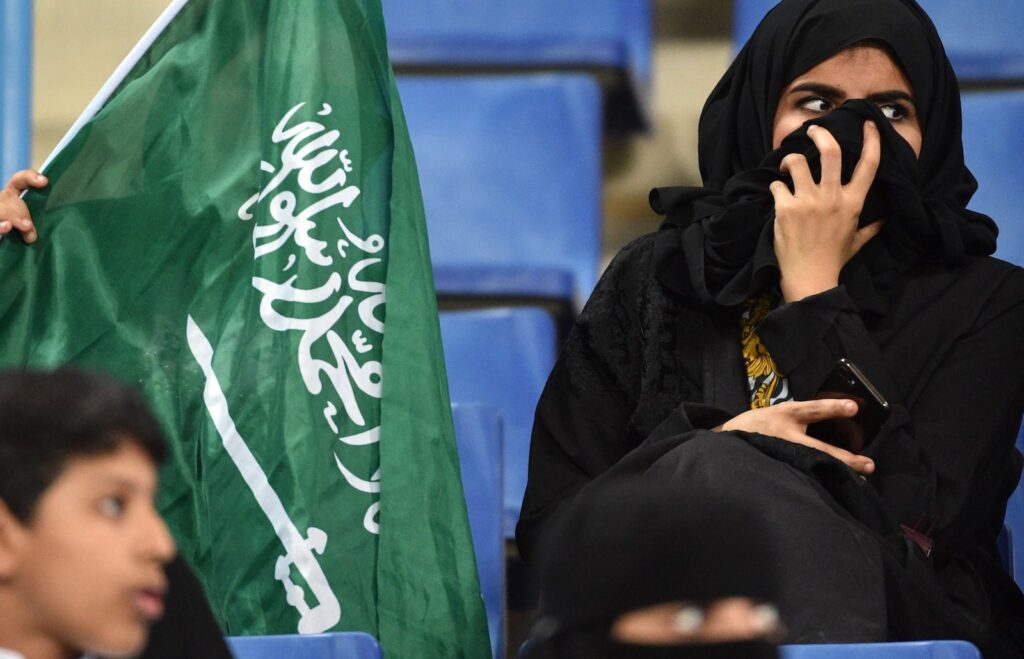Every once in a while, reports come out of Saudi Arabia that a new law has been passed, or that an old one has been abolished, and Saudi women have been granted another right.
Some notable ones as of late are a woman’s right to drive, granted after the law stripping this right was abolished in June 2018, a woman’s right to obtain a passport and travel abroad without consent from a male guardian if she is at least twenty-one, granted through an amendment in August 2019, and most recently, a woman’s right to join the armed forces, passed in February 2021.
These laws are responded to with global media frenzies, reported on by the largest news outlets in every major region and country. As a result, it is not uncommon for people to think that Saudi Arabia has generally improved in women’s rights. However, according to the Human Rights Watch’s (HRW) 2020 World Report on Saudi Arabia, Saudi Arabian women are still required to have male guardian approval for many things such as getting married, leaving prison, or obtaining healthcare. Women also face discrimination in regards to family, divorce, children and child custody matters. On top of this, men are still able to file for guardianship of women based on perceived “disobedience,” which can lead to women being forcibly imprisoned or kept in the male guardian’s home.
This report shows little change in Saudi Arabia’s position in both the HRW 2019 World Report and the HRW 2018 World Report. So, despite chipping away at the guardianship system with small legislative changes, the overall treatment of women, in regards to legislation, has remained fairly consistent.
Perhaps even more egregious than the persistence of the guardianship system is the Saudi government’s treatment of those who have spoken out against it. While the government is praised in the press for somewhat minor changes in the system, the women’s rights activists calling for change are arbitrarily imprisoned. Ahead of the lifting of the ban on women driving in 2018, over a dozen women’s rights activists in Saudi Arabia were arrested. After being held for a year, many faced trials throughout 2019. These trials were closed, barring journalists and diplomats from attending. One of the activists, Loujain al-Hathloul, was only released this February after spending over one thousand days in detention. Even after her release, she faces travel bans and a suspended three-year sentence under Saudi terrorism laws.
Other women’s rights activists arrested alongside al-Hathloul were said to have been released as well, but it is likely they are under similar restrictions, diminishing their ability to speak up. This was not an isolated incident. According to Amnesty International, in April of 2019 fourteen women’s rights activists were arrested for peacefully supporting women’s rights movements. The individuals were kept in detention through the end of the year without charge or trial.
Many believe that the Saudi government’s decisions to make changes to their policies regarding women’s rights come from international pressure over anything else. This is a particularly popular stance when considering the most recent reforms, as President Biden has put pressure on the Saudi government through his cabinet’s commitment to protecting human rights abroad. This is thought by many to be the main reason behind the release of al-Hathloul, but it does not reflect a real change in the will of the Saudi government to protect and help their female citizens.
Aside from the issue of stifling women’s rights activists, the Saudi government’s actual reforms seem to be largely cosmetic. Despite passing a domestic abuse ban in 2013, the Saudi government still, in many cases, mistreats the women who decide to report such abuse. In 2020, a large social media movement started in Saudi Arabia where women used the hashtag “Why I Didn’t Report It” to discuss their experiences with domestic abuse and the legislation surrounding it. Women who participated spoke of smear campaigns and victim-blaming if they reported, and many were arrested after being reported by their male guardians for disobedience. As long as the male guardianship system exists, many women in Saudi Arabia do not feel safe going to the police and are unable to escape abusive situations.
There has also been a large resistance to the changes in the law from those that want the guardianship system to remain intact. Many women face backlash from their families for invoking their recently granted rights. So, although women may have the legal right to join the military, get a job, drive a car or get a passport, all without the consent of a male guardian, many still feel obligated to get permission from their father, brother, or husband depending on how accepting the family is of the new laws.
Considering that women have been beaten, arrested, and, in extreme cases, killed for disobedience under the male guardianship system, its continued existence does not set a promising precedent for the future of women’s rights in Saudi Arabia. Until major action is taken to dismantle the discriminatory guardianship system and women’s rights activists are no longer silenced, it is difficult to say that the Saudi government has made any serious headway in promoting women’s rights.
It seems many recent reforms came from a place of economic strategizing rather than a serious commitment to change. For example, the expansion of jobs women are now allowed to work expands the Saudi workforce, boosting the economy. It’s very possible that this is the main goal for the Saudi government when taking into account the fact that Crown Prince Mohammed bin Salman has repeatedly dedicated himself to diversifying the Saudi economy in preparation for a post-oil future. Allowing women to participate in the economy in a greater capacity would be a large part of that.
It is worth questioning why the governments and news organizations of the world praise Saudi Arabia for these small changes without demanding the real changes necessary for achieving gender equality. For countries like the United States, which has a vested interest in maintaining good relations with the world’s largest oil producer, it has become common practice to turn a blind eye to the questionable practices of the Saudis.
This was affirmed just recently with the Biden Administration’s decision not to penalize the Saudi Crown Prince over the killing of journalist Jamal Khashoggi despite their aforementioned commitment to human rights. Khashoggi’s murder on October 2, 2018, inside the Saudi consulate in Istanbul, caused international outrage due to the suspected involvement of the Saudi government. In February 2021, a U.S. intelligence report on the murder was released directly implicating the Saudi crown prince. Biden decided that the relationship was too important to risk direct punishment, citing counter-terrorism and facing Iran as his reasoning.
Without a greater commitment to abolishing the male guardianship system and with a continued history of suppressing the voices of women’s rights activists, it is hard to believe that the Saudi government wants to bring about real change. In combination with inaction on an international level, it is likely that this pattern of making minimal revisions to legislation preceded or followed by sweeping crackdowns on activism will continue to act as the only way the Saudi government addresses women’s rights.







